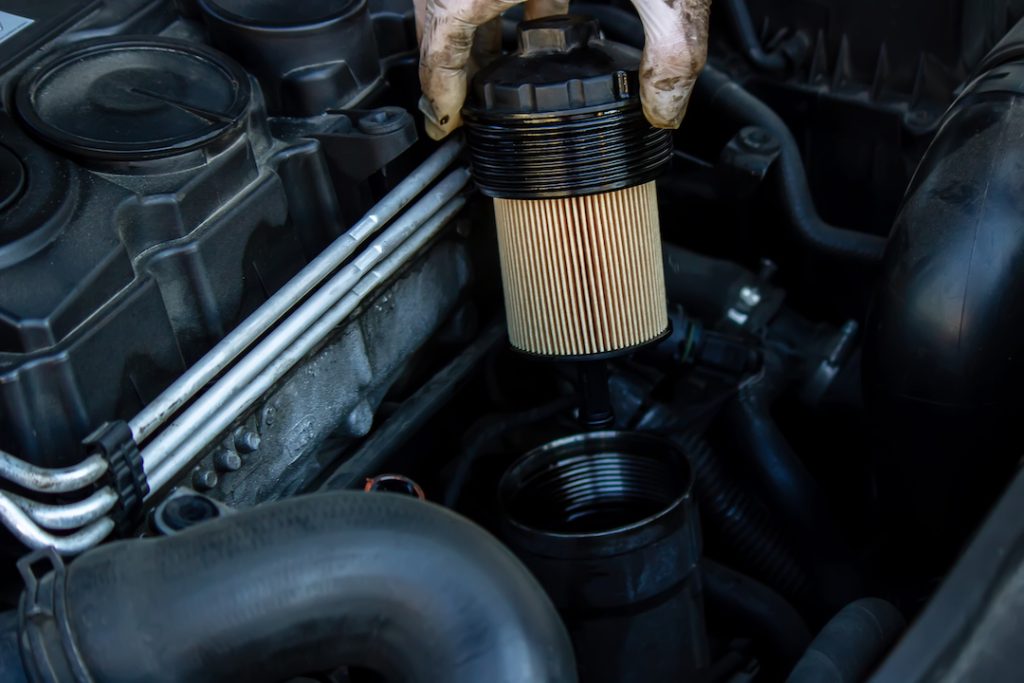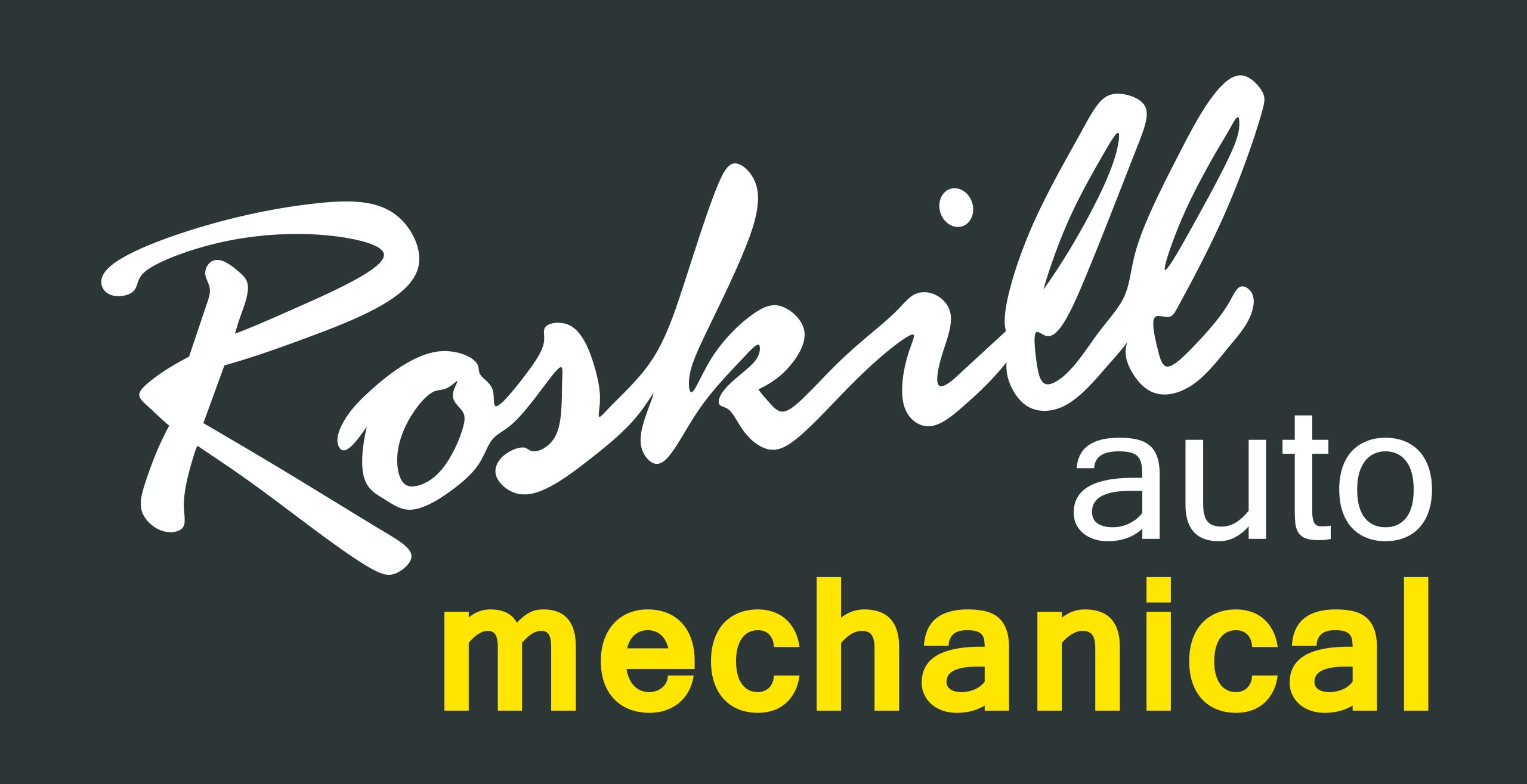Auckland Mechanic – Oil change, oil leak
It’s a common scene – you reverse out of your parking spot, notice a small puddle where your car was parked, and you drive on. Hold up. Maybe that small puddle isn’t so innocent after all. Perhaps you should stop, get out and investigate further.
Puddles under your vehicle are not normal. While your car relies on several types of fluid to run, it should not leak any of them. The only exception is some condensation from the air conditioning system that may drip out. If your car is leaking any other fluids, we strongly recommend you take action and get in touch with us so we can determine what’s going on.
One of the most common leaks is an oil leak. This type of leak requires immediate attention.
What does an oil leak look like?
If your car is leaking engine oil, you’ll notice a stain or puddle that is brown or black in appearance.
It will also have an oily consistency (which makes sense), but that may be harder to detect.
What causes a vehicle to leak oil?
Valve cover gasket
If the engine is leaking oil from the top, there may be an issue with your valve cover gasket. On top of the engine there is a valve cover protecting the components inside the cylinder head. A gasket provides a seal between the cylinder head and valve cover. The valve cover gasket wears down over time and becomes less effective at sealing off the oil. If the area around the valve cover gasket is covered in oil, it’s time to replace the part.
Oil pan gasket
The oil pan gasket is one of the most common locations for an oil leak. The oil pan gasket provides a seal between the oil pan and engine block. If the gasket is leaking oil, this could indicate that it needs to be replaced.
Timing cover gasket or seal
Older vehicles have a timing belt, while most modern ones use a timing chain. The timing chain is lubricated with oil and a timing cover protects the timing chain. The timing cover gasket or seal keeps oil inside the timing cover. Over time, however, timing covers and timing cover gaskets wear down and oil may start to escape from inside the timing cover.
If oil is leaking from the centre of the engine near the front, this may be a sign of a timing cover leak. You’ll need a mechanic to inspect your vehicle to determine which of these may need to be replaced to repair the oil leak.
Camshaft seals
Camshaft seal leaks are common on engines that use a timing belt to keep the camshaft and crankshaft in sync. A camshaft seal fits around the end of each camshaft and prevents oil from leaking out of the engine. If it is a camshaft leak, you’ll see oil on the rear of the engine below the valve cover.
Oil filter and oil drain plug
When you get your oil changed, the oil drain plug is removed then reinstalled. The oil filter is also replaced at the same time. Because these components are handled and adjusted often, they are frequently the source of oil leaks.
Cylinder head gasket
Head gaskets can leak both engine oil and coolant externally. Flat engines (boxer engines) are particularly susceptible to this problem.
Front and rear crankshaft seals
Seals, which prevent oil from leaking from the engine, sit at both ends of the crankshaft, an internal engine component. Often, these are referred to as the front and rear main seals. If a crankshaft seal leak is small, oil may start to accumulate on the underside of the engine. But if it’s a large leak, there may be a visible oil leak in the front of the engine.
What happens if you ignore an oil leak?
If you don’t address an oil leak, a number of things can happen – and none of them is pleasant.
For starters, we need to emphasise that oil is a flammable liquid that can ignite. You don’t want puddles of oil around your driveway or property, or on the bottom of your shoes. You also don’t want a flammable liquid dripping from your car when you’re driving.
Oil stains or puddles will cause damage to your driveway or garage floor. They’ll possibly also damage other items that come in contact with them (children’s toys, gardening equipment, etc). Oil will make your driveway or garage floor slippery and dangerous. And oil can cause health issues for animals who smell or lick it.
Used motor oil contains toxic substances and possibly even pieces of lead, zinc and arsenic from metal engine components. If used engine oil is washed away by rain or irrigation water, these substances can seep into water or sewage systems. These contaminants eventually make their way into other waterways in the form of runoff, and can be toxic to plants and animals.
And then there are the dangers of driving around a car that is leaking oil. The main role of engine oil is to lubricate the engine parts, which are in constant friction. The oil reduces this friction and therefore reduces the wear and tear of engine parts.
If your vehicle is leaking oil, it may be undergoing unnecessary friction and wear and tear. The damage to your engine can become serious and expensive – and it’s preventable.
We don’t recommend you try to fix an oil leak yourself. It’s not as simple as an oil check or change. There may be more complex parts that need repairing, and you may do damage to the engine.
Book an appointment with the experienced professionals at Roskill Auto Mechanical and we will assess what needs to be repaired or replaced.
Contact us online or call us on 092421870 for a free quote or to book an appointment.

